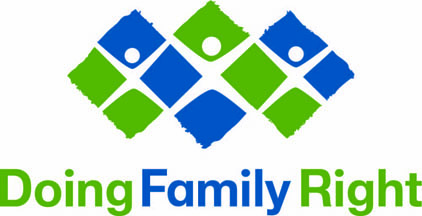Marriage: Forgiveness Part 1—What Does Forgiveness Look Like?
- August 11, 2010

Forgiveness Part 1—What Does Forgiveness Look Like?
The hurt and disappointment was eating me alive. Maybe you have felt it too. I couldn’t sleep. I couldn’t eat. I didn’t laugh. I seemed fixated, almost hour-by-hour, on this powerful sense of injustice. It had a stranglehold on me. A deep-seated bitterness was on the verge of suffocating me.
You see, when someone close to you – someone you trust, carelessly makes choices with no regard for you or your friendship, the sense of betrayal is numbing. You feel disrespected, tossed aside and crushed. The rejection experienced through their disregard is so very deep.
Where do you start? Forgiveness isn’t even on the horizon. Just thinking the word can put a knot in your stomach.
When I have been deeply hurt, resentful thoughts flood my consciousness like an overflowing toilet. These cruddy feelings rob me of day-to-day freedom and can spill all over the place and hurt the other people I love. But these deep-seated painful emotions are not easy to flush away.
After all, it doesn’t seem right or fair to let an offense go especially when the offender doesn’t seem to want to apologize for it. What’s the deal? Don’t we teach little kids to “say you’re sorry” when they have done something wrong?
It’s only right. But too often in life, it’s not the norm.
Honestly, true forgiveness of others who have betrayed or broken trust may be the hardest thing I have ever done. The deeper the sense of wrong and pain involved, the more difficult it is to do. But don’t forget why we forgive. It is to gain freedom for ourselves too. It is the mandate to move on.
We need to move beyond the hurt for the right reasons. Don’t fool yourself or try to manipulate the offender with hurtful actions or cutting words. Lashing back won’t bring you freedom. Revenge is sweet if you like drinking poison thinking you are going to make them suffer. Though payback for the hurt seems justified, you need to let go of your need to punish them.
What does it mean to forgive? Here’s five things to keep in mind.
Forgiveness is an attitude of the heart.
Revisit your right motives for forgiving to strengthen your resolve. It means putting a stop to both the angry feelings and acts of resentment for any hurt they have caused. This is easier said than done. But there’s more.
Forgiveness is without waiting for an apology.
It involves canceling a debt that we feel is owed to us. We desperately want them to admit what they did was wrong, feel remorse over the hurt caused, make a sincere apology to us, and take steps to fix things where they can. We feel we are owed these things. That’s their debt.
It would feel so right if they took responsibility and paid what is due – so freeing for us– but sadly, this course of action is uncommon and unlikely. People just don’t own the pain they cause others like we would like or feel we deserve.
It would be so much easier for us to forgive them if they took these steps. But the offender may never see things the way we do and we could wait indefinitely for them to get on board. What if they never get to the point of initiating an apology to you?
Then you are stuck with that overflowing toilet of poisonous waste.
Forgiveness is taking initiative to cancel the debt.
It puts a stop the spill over of negative emotions. Forgiveness is our step. We are wise to choose to pardon their debt letting go our need for validation and for justice. It is releasing the offender from the hurt they have caused and from their responsibility to make things right. This will never be easy but waiting in bitterness only sours your soul. We can’t wait for them to get their heart right, ask for an apology or to make amends. We can’t wait for them at all.
At the core, forgiveness is a heart change that frees both you and the one who hurt you from what you feel they owe you. You lay the offense down. It is a very hard thing to do.
Forgiveness is a process.
Remember, is not a step, it is a progression – a series of steps all confirming the initial decision to release the person. In all honesty, I’ve had to revisit my decision to forgive many times, sometimes 2 or 3 times in a day. It is an act of the will. You choose to live out forgiveness in spite of hurtful memories returning and hard feelings resurfacing.
Forgiveness requires help.
Sometimes it is wise to have someone in your corner to talk this through…support you in the journey. I have also found that God is more than willing to help any of us out. He Himself forgives so well. He can bring perspective, courage and strength to forgive. Ask Him…I did.
Look for Part 2- Why Forgiveness is a Gift to Yourself and Part 3- How to Forgive? Pass this article along to someone who needs help with forgiveness and come back for more truth that challenges relationships. And remember, you’ll never regret taking the steps to forgive those who have wronged you.
**NOTE: If you or your marriage/family is in crisis, seek creditable support right away. Our Care Centre has a team of counsellors ready to help. We can counsel you in person, if you are in the Fraser Valley, or via phone or Skype if you live farther away.


